East African Crowned Crane
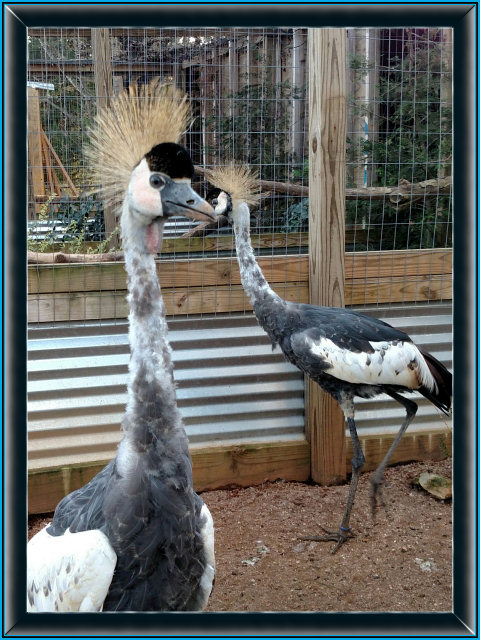
|
Common Name: |
East African Crowned Crane
|
|
Scientific Name: |
Balearica Regulorum |
|
Clutch Size: |
2 to 5 eggs |
|
Incubation Period: |
28 to 31 days |
|
Habitation: |
It occurs in dry savannah in Africa south of the Sahara, although it nests in somewhat wetter habitats. They can also be found in marshes, cultivated lands and grassy flatlands near rivers and lakes in Uganda and Kenya and as far south as South Africa |
|
Conservation Status:
|
IUCN Red List endangered species |
African Pied Crows
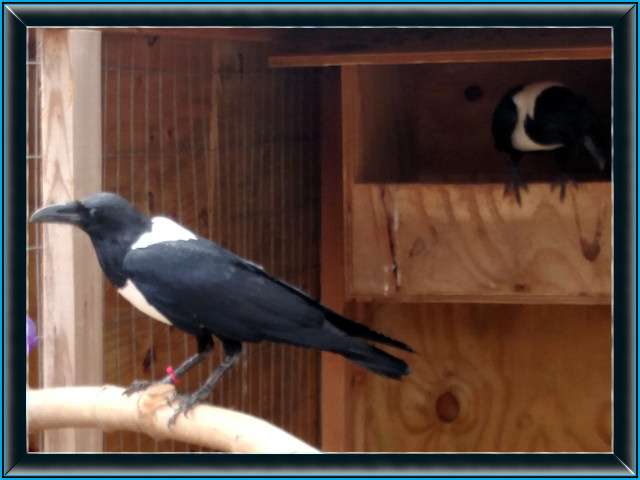
|
Common Name: |
African Pied Crows
|
|
Scientific Name: |
Corvus Albus |
|
Clutch Size: |
3 to 6 eggs |
|
Incubation Period: |
18 to 20 days |
|
Habitation: |
This species, Africa's most widespread member of the genus Corvus, occurs from Sub-Saharan Africa, specifically Senegal, Sudan, Somalia and Eritrea down to the Cape of Good Hope and on the large island of Madagascar, the Comoros islands, Aldabra group islands, Zanzibar, Pemba and Fernando Po. It inhabits mainly open country with villages and towns nearby. It does not occur in the equatorial rainforest region. It is rarely seen very far from human habitation, though it is not as tied to the urban way of life as the house crow (Corvus splendens) of Asia, and may be encountered far from human habitation in Eritrea.[2] |
|
Conservation Status:
|
IUCN Red List least concern species |
Ayam Cemani
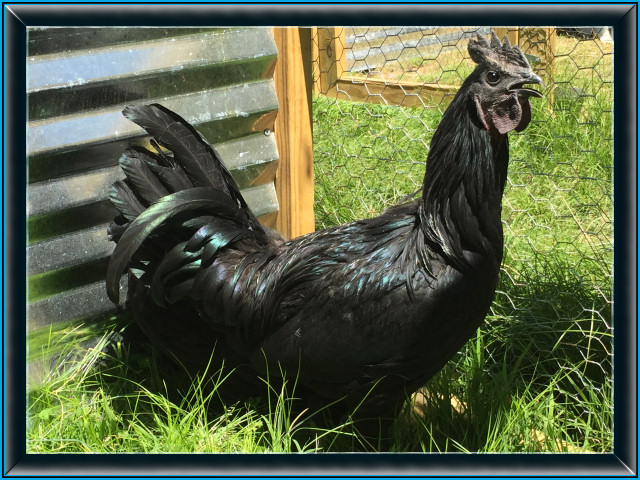
Picture courtesy of
http://libertypheasants.com
|
The blackest of all the chickens is the Ayam Cemani. It is native to Java, Sumatra, and Madura Island in Indonesia. Due to fibromelanosis, a genetic condition that causes hyperpigmentation, these chicken have black feathers, skin, beaks, claws, and meat, which you can see here. The only part of the chicken not completely black is its blood, which is darker than a normal chicken’s blood. |
Silver Laced Orpingtons
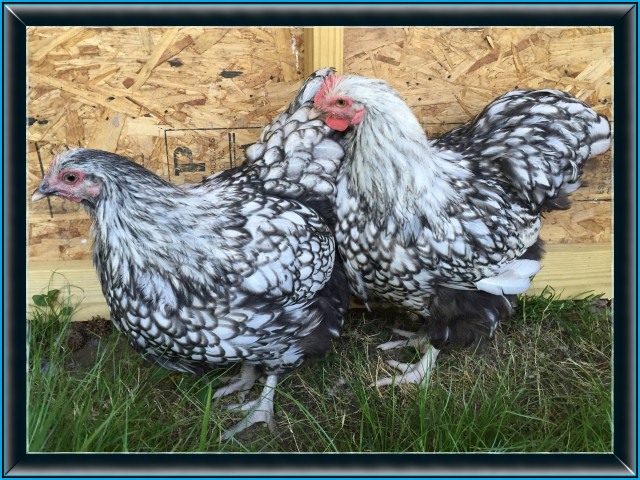
Picture courtesy of
http://libertypheasants.com
Blue Crane
(Stanley Crane)
Green Wing Macaw
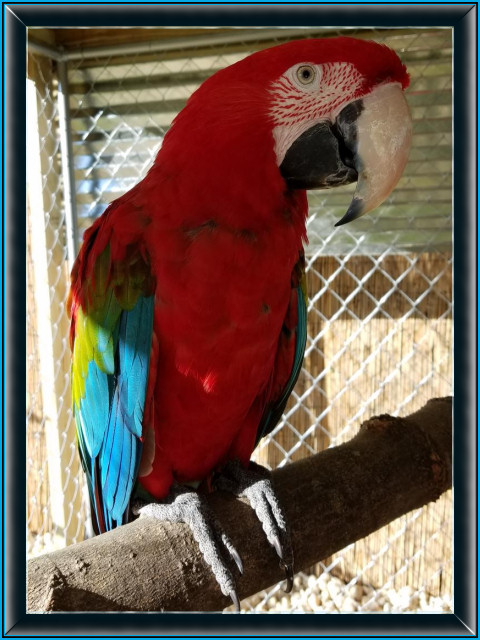
Move your mouse over the picture
to view another
|
The green-winged macaw generally
mates for life. The female typically lays two or three
eggs in a nest made in a hole in a tree. The female
incubates the eggs for about 28 days, and the chicks
fledge from the nest about 90 days after hatching. |
|

